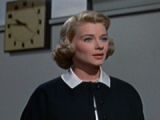New Leaves and the Like
 I've been thinking a lot lately about taking action purposefully. Choosing to do something rather than letting circumstances and others dictate what I do and whom I'll be. Three things in particular are resonating with me this week:
I've been thinking a lot lately about taking action purposefully. Choosing to do something rather than letting circumstances and others dictate what I do and whom I'll be. Three things in particular are resonating with me this week:1. I watched a documentary on biblical disasters on the History Channel this week, and at the very end, a professor (of anthropology, I think) said that the most important thing that humans can do after a natural disaster is go to work. Why? To prove that we are actors in the world, not just objects that are acted upon.
2. I had an hour and a half phone conversation with Aunt Shirley on Sunday, and she said she's doing okay. I'd be impressed if she managed to get up and brush her teeth every day, but not only has she done that, Aunt Shirley has taken care of most of Uncle Loren's assets, sold her barn, gone on a trip to Cozumel with her daughter, and gotten her hair done -- even managing a smile sometimes. "I'm doing okay" is an understatement for a woman who lost her husband suddenly three months ago. This is what she told me: "I wake up every day, and I think, 'You can have a good day or a bad day, and that is up to you.' Loren wouldn't want me to sit in the living room and cry, so I don't." She cited an example of a woman she knew peripherally who still cries every day even though her husband died seven years ago. Aunt Shirley is fiercely determined not to be like that. I can hear it in her voice.
3. I like this old post of Ramit's that he just linked to again. I've thought about it a lot this week, and already it's given me a little hope for a project I've wanted to start for a while now.
The outcome of all of this? Well, for example: I haven't procrastinated as much as I usually would have on a freelance project that's due next week, and, for me, that's huge. Like the professor, Aunt Shirley, and Ramit recommend, I'm taking conscious steps toward a goal and changing my mindset one day at a time.



0 Comments:
Post a Comment
<< Home